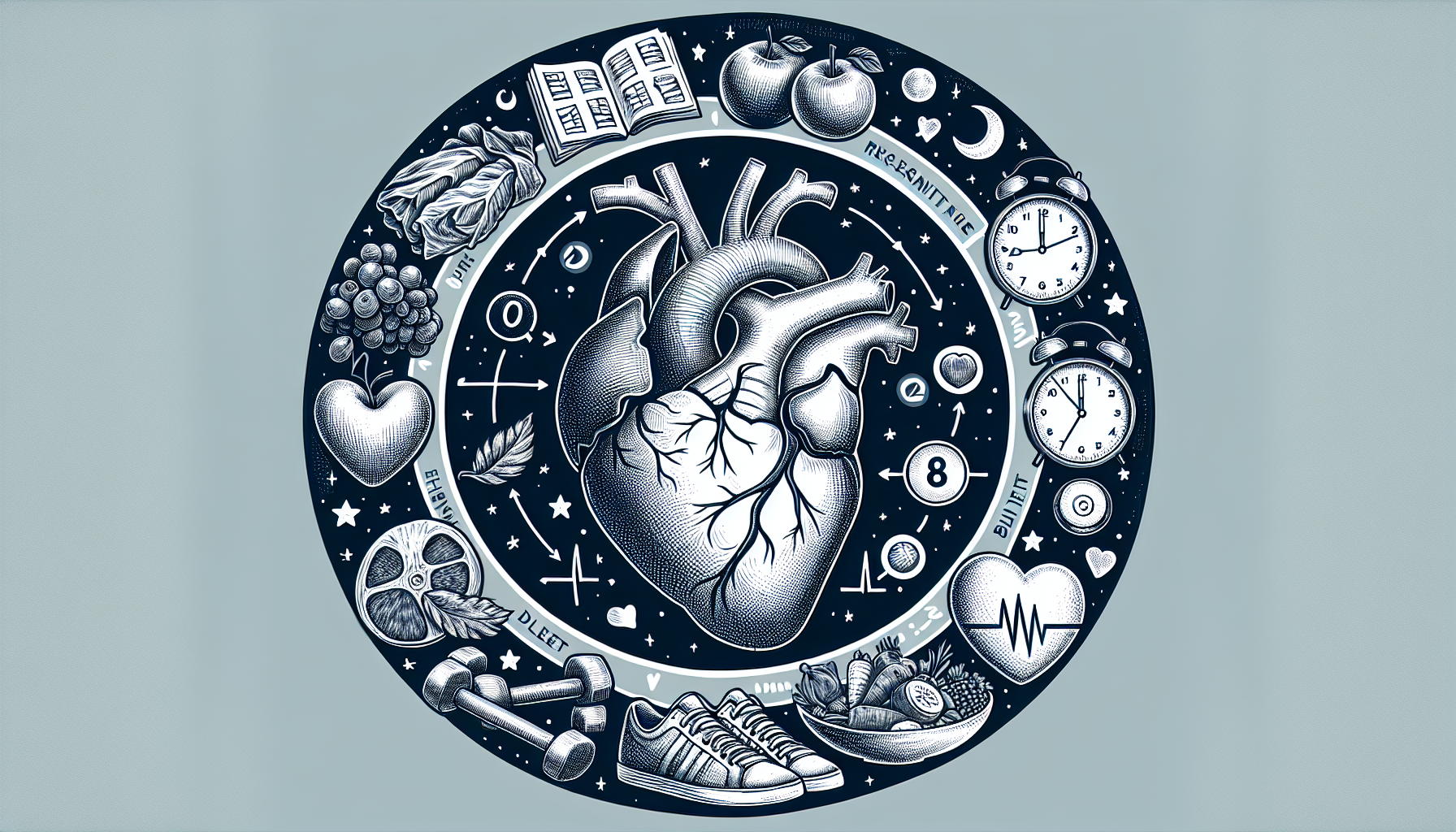Sleep apnea, a condition characterized by repeated interruptions in breathing during sleep, is more than just a cause of daytime drowsiness and discomfort. Emerging evidence suggests it may also have significant implications for heart health. This article delves into the mechanisms linking sleep apnea to cardiovascular diseases and provides insights into how managing this sleep disorder can protect and improve cardiac function.
The Underlying Link between Sleep Apnea and Cardiovascular Disease
Sleep apnea occurs when the muscles of the throat fail to keep the airway open, despite efforts to breathe. This can result in short episodes where breathing stops, known as apneas, or periods of shallow breathing, referred to as hypopneas. These disturbances lead to fragmented sleep and a reduction in blood oxygen levels, both of which can contribute to cardiovascular stress.
Impact on Blood Pressure and Heart Rhythm
One of the most immediate effects of sleep apnea is on blood pressure. As the body struggles to take in air, the oxygen levels in the blood drop, causing the blood vessels to constrict and the heart to work harder to circulate blood. This can lead to persistent hypertension, a major risk factor for heart disease.
Furthermore, the irregular breathing patterns can contribute to heart rhythm disorders, such as atrial fibrillation, which can increase the risk of stroke and heart failure.
Endothelial Dysfunction and Atherosclerosis
Sleep apnea’s impact on the cardiovascular system extends to the health of the blood vessels themselves. The repeated episodes of low oxygen levels and subsequent reoxygenation can lead to oxidative stress and inflammation, which are detrimental to the endothelium – the inner lining of the blood vessels. This endothelial dysfunction is a precursor to atherosclerosis, the buildup of plaques in the arteries that can lead to heart attacks and strokes.
Heart Health and Comorbid Conditions
It’s important to consider the comprehensive nature of cardiovascular health, which involves not only the heart’s structure and function but also its interplay with other bodily systems. The link between cardiovascular health and sleep apnea exemplifies this interconnectedness, highlighting the significance of a holistic approach to heart health that includes sleep quality as a crucial component.
Identifying and Managing Sleep Apnea
Recognizing the signs of sleep apnea is the first step toward mitigating its cardiovascular impact. Common symptoms include loud snoring, daytime fatigue, morning headaches, and waking up with a dry mouth or sore throat. If these symptoms are present, it is advisable to seek a medical evaluation, which may involve a sleep study to diagnose the condition.
Treatment Options
The most common treatment for sleep apnea is Continuous Positive Airway Pressure (CPAP) therapy, which uses a machine to deliver a steady stream of air through a mask, keeping the airway open during sleep. Other treatments include lifestyle changes, such as weight loss and exercise, positional therapy, oral appliances, and in some cases, surgery to remove obstructions in the airway.
The Role of Lifestyle in Combating Sleep Apnea and Protecting the Heart
Lifestyle modifications can be a powerful tool in managing sleep apnea and enhancing heart health. Regular physical activity, maintaining a healthy weight, and consuming a balanced diet are pivotal strategies for improving circulation and cardiovascular health. Additionally, avoiding alcohol and sedatives before bedtime can help reduce the severity of sleep apnea episodes.
The Benefits of Exercise
Exercise not only helps in weight management but also strengthens the heart and improves the efficiency of oxygen utilization in the body. It can also promote better sleep quality and reduce the symptoms of sleep apnea.
Nutrition’s Role in Heart Health
Diet plays a significant role in both the management of sleep apnea and the maintenance of heart health. Diets rich in omega-3 fatty acids, fruits, vegetables, and whole grains can help reduce inflammation and support endothelial function, potentially mitigating some of the cardiovascular risks associated with sleep apnea. The impact of antioxidant-rich foods on heart disease risk further underscores the importance of a heart-healthy diet.
Monitoring and Further Research
Continuous monitoring and research are vital to understanding the full scope of sleep apnea’s impact on the heart. The role of continuous heart monitoring in disease prevention is an area of growing interest, as it can help detect early signs of heart strain in individuals with sleep apnea.
External Resources Supporting Heart Health and Sleep Apnea Management
To further support the points made in this article, here are several niche resources that provide valuable information on the topic:
- An in-depth analysis of the cardiovascular consequences of obstructive sleep apnea from a specialized cardiology journal, highlighting the pathophysiological mechanisms and clinical implications.
- A study on the efficacy of CPAP therapy in reducing cardiovascular risk in patients with sleep apnea, published by a leading sleep research institution.
- Guidelines on lifestyle modifications for the management of sleep apnea from a renowned health organization, detailing dietary recommendations and exercise protocols.
Each of these resources provides a specialized perspective on the intricate relationship between sleep apnea and heart health, offering evidence-based strategies for managing and improving outcomes.
Conclusion
Understanding the connection between sleep apnea and heart health is crucial for both patients and healthcare providers. As research continues to unravel the complex interactions between sleep disorders and cardiovascular function, it becomes increasingly apparent that a comprehensive approach to treatment and lifestyle management can lead to better health outcomes. By recognizing and addressing the risks associated with sleep apnea, individuals can take proactive steps towards protecting their heart health and enhancing their overall well-being.
In conclusion, sleep apnea is not a condition to be taken lightly. Its far-reaching effects on heart health necessitate prompt diagnosis, effective management, and a commitment to lifestyle changes that support both good sleep and cardiovascular wellness. By staying informed and proactive, we can mitigate the risks and pave the way for a healthier heart.



